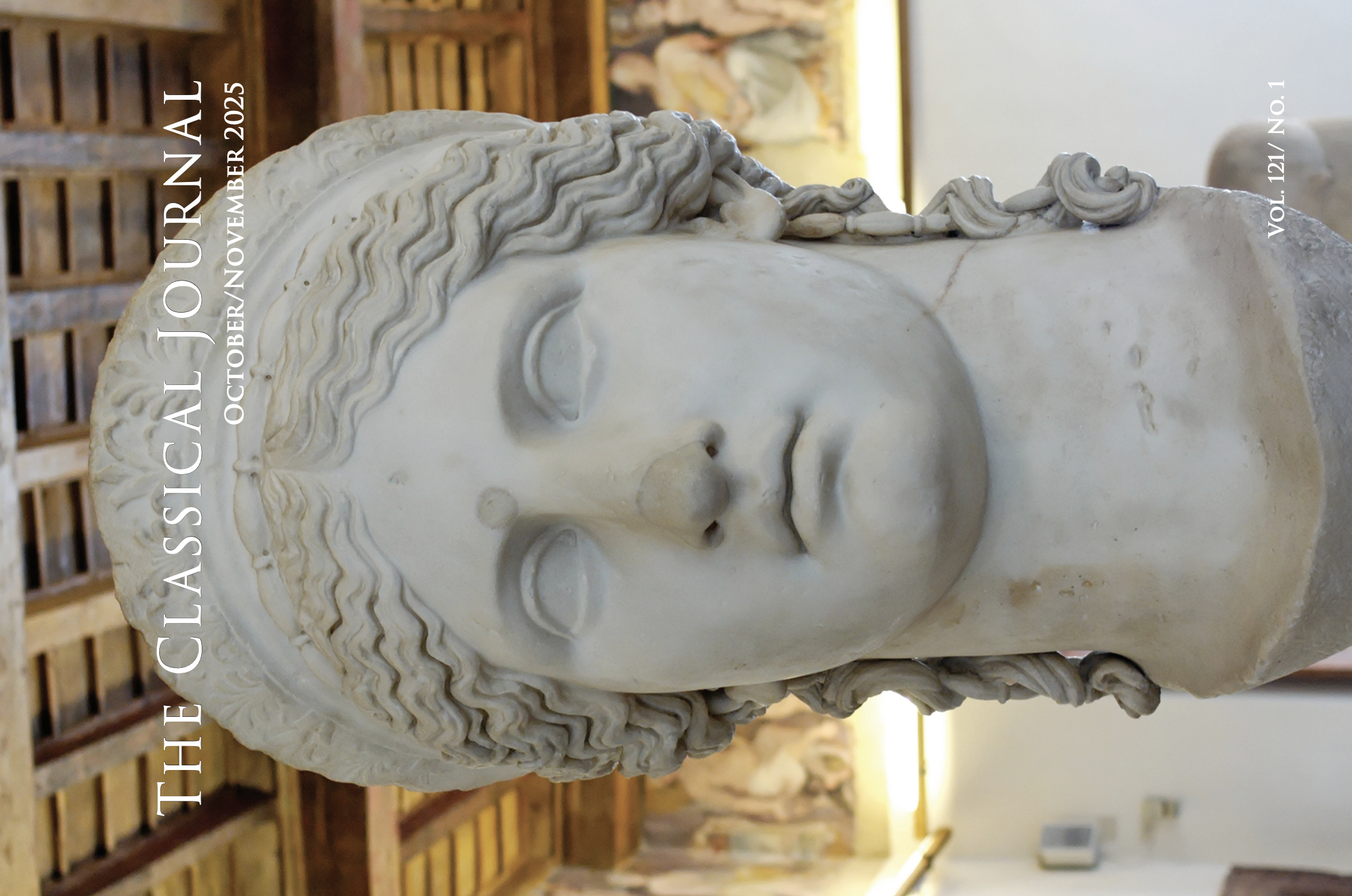The following articles are contained in CJ
118.1
Abstracts of Articles
Staging Power: Alexander, Athens, and the Contests at Tyre
At a time of waning military prestige in the fourth century, Athens attached great importance to its choral and dramatic heritage as a source of civic display and pride. In spectacular festivities staged at Tyre in 331 bce and detailed by Plutarch (Alex. 29.1-5; de fort. Alex. 334 d-e), Alexander the Great drew upon elements of the Athenian contests in his own celebrations. I suggest here that he did so in order to articulate his own power with a Greek—and more particularly an Athenian—audience in mind, and that his gesture was shaped by apprehensions of instability in the Peloponnese.
Bright Heads: Intertextuality and Fire Imagery in Odyssey 18
In this paper, I analyze the presence of fire and light imagery in the Odyssey, especially in book 18, against the backdrop of Achilles’ return to the battlefield in the Iliad, where the motif of fire plays a pivotal role. Approaching the Homeric poems from an intertextual perspective, I argue that the poet of the Odyssey uses a typically Achillean imagery of fire to foreshadow Odysseus as an implacable Iliadic warrior. As a case-study, I propose a reading of Od. 18.354–6 in the light of Il. 18.206–14, aiming to show how fire-related elements in the description of Odysseus disguised as a beggar clearly allude to Achilles’ appearance against the Trojans.
Irony and Figured Language in Cicero's Letter to Lucceius
In Cicero’s notorious letter to the historian L. Lucceius (Fam. 5.12), the orator creates an ironic persona through humor, figured language, and other markers of urbanity, destabilizing his readers’ sense of the letter’s apparent intent. The high level of intricacy and the author’s ludic tone draw attention to the form of the letter at the expense of its content, framing it as a virtuosic performance rather than a serious request. Cicero’s teasing of Lucceius points him more strongly toward an ironic interpretation of the letter as a joke shared between friends.


